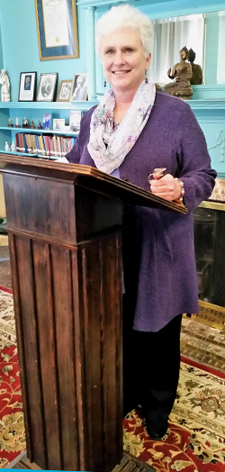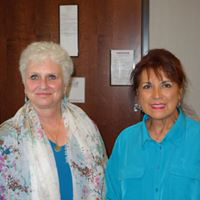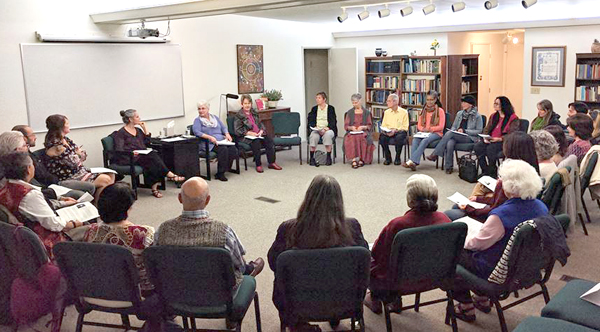Printed in the Fall 2017issue of Quest magazine.
Citation: Stanciu, George, "The Fetters of “Free Thought”" Quest 105:4(Fall 2017) pg. 26-30
By George Stanciu
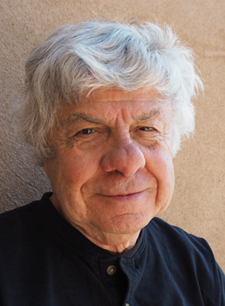 We Americans so firmly believe that each one of us has freely chosen our own way of life that we immediately reject the suggestion that to a large extent our thinking is programmed by culture; I know I did for years. But culturally-given habits and attitudes are especially powerful precisely because we do not usually reflect on them. “Most of us are prisoners of the culture’s current presuppositions about life’s purposes,” historians Richard and Susan Rapson write. “We believe ourselves to be the shapers of our own destinies, but more often we chase after culturally-defined goals as though we were automatons, unaware of the spate of signals which constantly barrage us and mold our attitudes” (Rapson, 7). So, perhaps, just perhaps, we are trapped within the bubble of modernity and not as free as we think we are.
We Americans so firmly believe that each one of us has freely chosen our own way of life that we immediately reject the suggestion that to a large extent our thinking is programmed by culture; I know I did for years. But culturally-given habits and attitudes are especially powerful precisely because we do not usually reflect on them. “Most of us are prisoners of the culture’s current presuppositions about life’s purposes,” historians Richard and Susan Rapson write. “We believe ourselves to be the shapers of our own destinies, but more often we chase after culturally-defined goals as though we were automatons, unaware of the spate of signals which constantly barrage us and mold our attitudes” (Rapson, 7). So, perhaps, just perhaps, we are trapped within the bubble of modernity and not as free as we think we are.
Every culture tells its members who they are, why they are here, and what the world is about. What defines a culture are the social, emotional, and intellectual habits that are passed on from one generation to the next, whether it is the Lakota Indians, Harvard University, or Google Inc. Culturally given habits are the substance of custom, or “our way of doing things,” and they possess more authority than civil law, because such habits are the essence of daily living. Every culture lays down patterns of behavior and thought that most of its members follow blindly. Often, instead of a person saying “I am thinking,” it would be more accurate for him or her to say that “culture thinks for me.” Psychoanalyst Erich Fromm elaborates: “In expressing an opinion, for instance, we say, ‘I think’ this or that. If one analyzes this opinion, however, one might discover that the person only voices what he has heard from someone else, what he has read in the newspaper, what he was taught by his parents when he was a child. He is under the illusion that it is he who thinks of this, when actually it would be more correct if he said: ‘It thinks me.’ He has about the same illusion a record player would have which, provided it could think, would say, ‘I am now playing a Mozart symphony,’ when we all know that we put the record on the record player and that it is only reproducing what is fed into it” (Fromm, 49).
Ethnologist S.M. Molema, writing about his own people, the Bantu tribe, points out that in premodern Africa a person’s “actions are controlled by iron reins of tradition, his conduct is constrained by rigid custom. His very words are often a formula” (Molema, 136; emphasis added). Prince Modupe of the So-So tribe in French Guinea confirms Molema’s observation: “When I lived with my people in Dubricka, all of my opinions and judgments were formed by them, by my mother and the elders and the teachers in the Bondo Bush. A youth was taught never to question the validity of anything an elder said” (Modupe, 110). Many Eskimo and aboriginal tribes do not even have a word for disobedience. Group expectations are so strong that the young learn to follow custom unthinkingly, and as a result, such ancient peoples have no system of law and punishment.
Ancient Habits of Thinking
At an early age, a person in a premodern culture acquires the habit of understanding himself as part of a larger whole. The French political scientist Alexis de Tocqueville emphasizes that an “aristocracy links everybody, from the peasant to the king, in one long chain” (Tocqueville, 508). If I am a link in such a chain, I understand myself by looking outward to see who is above and below me in the social hierarchy. In this way, I form the habit of understanding myself as part of a whole. Later, I transfer this habit to thinking about other things. Thus, in a group-centered culture, the first habit of thinking is: to understand something, see how it is related to the whole. With such a habit, a person approaches every problem as an organic whole, not a composite whole made up of a sum of parts, and understands each of its many interrelated parts in terms of that whole, whatever it may be: humanity, the family, the person, or even an animal or plant. Before a Hopi potter begins to shape the clay, she has the entire design of the pot formed in her mind. No single element of the design has a symbolic significance in and of itself, but only in relation to the whole. The design intricacies of Hopi pottery are shown in the illustration.
| |
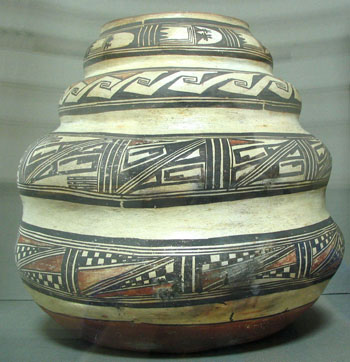 |
| |
Nampeyo, Hopi ceramic pot, c.1880, courtesy Phyzome, Wikimedia Commons |
In the ancient world, the constant reference point was the group. To be separated from the group was to lose one’s identity, or even one’s existence. Modupe says that at the turn of the century in Africa, “Any destiny apart from the tribe was, of course, beyond the limits of either imagination or intuition. It was as unthinkable as that one of the bright orange legs of a millipede should detach itself from the long black body of the creature and go walking off by itself” (Modupe, 53–54). If I am a member of a group-centered culture, I believe that I am social by nature and that without the group I would not exist. Each person about me understands himself or herself as part of a group. I see that I am always in need of other persons; thus when I do not know something, I seek out a person who possesses knowledge and wisdom. In this way, I form a second habit of thinking: seek guidance from masters. Hopi children frequently hear from their parents, “Your old uncle taught us that way; it is the right way,” and “Listen to the old people; they are wise.”
In addition, I realize that my experience is neither unique nor private; I understand what happens to me in terms of experience common to my family, to my clan, or to humanity. I recognize that my understanding is limited, but I have a common treasure to draw upon—the accumulated knowledge of my people. Life, for me, is governed less by abstract thinking and more by a common store of wisdom. Thus I acquire a third habit of thinking: experience will confirm the truth of what the masters say and reveal the wisdom behind their words. Hopis say, “Our way of life was given to us when time began.”
Modern Habits of Thinking
Alexis de Tocqueville, in “Concerning the Philosophical Approach of the Americans,” an absolutely brilliant chapter of his classic work Democracy in America (published in two volumes, the first in 1835 and the second in 1840), argues that since an American always begins with the self, each citizen forms the intellectual habit of looking to the part, not to the whole, and as a result is a Cartesian reductionist: “Of all the countries in the world, America is the one in which the precepts of Descartes are least studied and best followed” (Tocqueville, 429). Tocqueville explains this paradox: In a modern democratic society, the links between generations are broken, and consequently in such a society men and women cannot base their beliefs on tradition or class. Social equality produces a “general distaste for accepting any man’s word as proof of anything” (ibid., 429–30). Therefore, “in most mental operations each American relies on individual effort and judgment.” Just like Descartes, each American employs the philosophical method to seek the reason of things for oneself and in oneself alone.
From his study of nineteenth-century American life, Tocqueville concludes that “the Americans have needed no books to teach them philosophic method, having found it in themselves. Much the same can be said of what has happened in Europe.” Francis Bacon, in natural science, and René Descartes, in philosophy, “abolished accepted formulas, destroyed the dominion of tradition, and upset the authority of the masters” (ibid.). Luther, Voltaire, and, several centuries later, the man on the street in America submitted traditional beliefs to individual examination.
Proceeding by leaps and bounds, Tocqueville does not stop to give in detail the modern habits of thinking, so at the risk of appearing slightly redundant, let me flesh out his insights.
First, let me note that to grasp the habits of thinking of premodern peoples I had to imaginatively use published accounts by Africans, Native Americans, and Chinese, while to understand modern habits of thinking I just had to look at myself.
As a member of a modern democratic culture, I could not base my beliefs on tradition, custom, or class, because the links between the peasant and the king no longer exist in modernity. By the sixth grade, I did not understand myself in terms of either family or nature. I understand myself as an isolated, autonomous individual. My constant reference point, then, was always myself. Consequently, I formed the habit of always thinking of myself in isolation from other persons, and this habit carried over when I thought about other things. Thus, my first culturally given habit of thinking: to understand something, isolate it so that it exists apart from all relations.
Hence I believed that every part can be separated from the whole and that the whole can be understood as simply a collection of parts. With such a habit of mind, I attempted to understand every whole solely in terms of its parts. But the smallest parts of anything are material. Therefore the culturally given habit of thinking that the whole is a collection of parts made me a firm believer in materialism—I could not think any other way. I just “knew” that the universe, including all aspects of human life, was the result of the interactions of little bits of matter.
When I was a young theoretical physicist, I would have staked my life on the proposition that matter is the ultimate reality. The future philosophers and aspiring poets I knew in graduate school often asked me over beer about the fundamental elements of reality. With no hesitancy, like Erich Fromm’s record player, I could not help but say, “Atoms, genes, individuals, competition, and warfare,” and yet believed I was thinking, not mindlessly repeating what had been programmed into me, and my philosopher and poet friends did not strenuously disagree. I now know that virtually every American forms the intellectual habit of looking to the part, not to the whole, and thus is at heart a Cartesian reductionist.
Because of the principles of social equality that I had taken in, I did not trust the authority of any person and had an intense “distaste for accepting any man’s word as proof of anything” (ibid., 430). As a result, I relied on my own judgment and thought. Although I found philosophy a bore and totally irrelevant to my life, yet I proceeded just as Descartes did: the intellectual method I employed was to seek by myself and in myself “for the only reason for things” (ibid., 429).
Since American culture told me that all individuals are equal and that I could recognize the truth just as well as the next person, I thought that I had no need to seek guidance from others, even acknowledged masters. Indeed, I believed that if I followed another person’s judgment, I would give myself over to that individual, and thereby enslave myself and violate what was most precious to me, my personal freedom. Thus my second habit of thinking: rely solely on individual judgment and thought. Consequently, in American life no masters are recognized, and, in effect, the three great teachers of humankind—the Buddha, Socrates, and Jesus—are seen as just three voices among many. In fact, if anyone holds up someone as a master to follow, most Americans will ignore or dismiss that person, since it smacks of inequality.
American culture also informed me that the essence of individuality is uniqueness. Each individual has his or her own unique beliefs, tastes, feelings, thoughts, desires, and expectations. What is true for another individual is not true for me: everybody is different. Furthermore, each individual has a different way of evaluating his or her experiences. Thus another individual’s word or experience is not proof of anything. However, since all individuals are equal, my direct experience is not proof of anything either. From these cultural opinions, I learned to distrust my own experience. For instance, when I read in Aristotle’s treatises that “the whole is prior to and greater than the part,” “every person desires to know,” and “man is social by nature” are first principles, I did not look to my own experience for confirmation, but instead demanded a proof of some kind, and not finding an acceptable proof, I took each of these statements as assumptions that I could later deny, if I so wished.
Since individual experience is unique and truth is universal, I was led to form a third habit of thinking: accept as true only what can be proved through logic, mathematics, or scientific experiment. For me, reason and the scientific method replaced the authority of direct, concrete experience. In principle, I could carry out any logical argument, mathematical demonstration, or scientific experiment, and thus I never had to submit myself to an acknowledged master or any outside authority. I readily accepted the results of electrodynamics, general relativity, and quantum mechanics because they made no claim on my interior life and never challenged who I took myself to be.
Layered on top of these three democratic habits of thinking are religious dogmas and political ideologies—the equality of conditions does not exist in a vacuum. Many political junkies, those rabid viewers of Fox News or MSNBC, believe that they rely solely on their own judgment; when in actuality, political ideologues, left and right, often parrot what they saw on TV, heard on talk radio, or read on the Internet. Religious dogma and political ideology led to creationism and the denial of climate change, despite scientific evidence.
No one doubts that many Americans today consult priests or psychotherapists for guidance in life, although I suspect not with the blind faith or trust they would have had in the fifties. After the intensification of equality in the sixties, parishioners and clients understand themselves to be the final judges of what is best for them.
That science is the only intellectual authority in modernity seems to be contradicted by the widespread belief in astrology, herbal cures for cancer, and crystal healing for a disturbed psyche. But when science proclaims that life is pointless, can offer only slash-and-burn-and-poison for cancer treatment, and restores mental well-being through tranquilizers and psychotropics, then even the college-educated, out of desperation, turn to alternatives.
The real alternative is to examine the modern habits of thinking, all of which rely upon the fact that the links of the long chain from “peasant to king” have been broken. To say this in a more general way, in contrast to premodern cultures, where people understand themselves to exist only in relationship, in modernity, individuals assume they exist in isolation. One of these understandings of the human being clearly must be wrong.
Ironically, we have already demonstrated that the belief that we exist in isolation is false. No one, not you or me, not Aristotle or Descartes, initially chooses his or her habits of thinking. That ancient and modern habits of thinking exist shows how all human beings are programmed by culture to think in a certain way and is undeniably evidence that we exist only in relationship. This leads to an inevitable conclusion: contrary to our culturally instilled beliefs, modern habits of thinking are faulty and ultimately lead us to a false understanding of ourselves, nature, and the transcendent that has had bad consequences.
To give just one simple example: Chlorofluorocarbons, once used as refrigerants and propellants in aerosol cans, were tested extensively on human beings and found to be harmless. But the tests were carried out on individuals in laboratories isolated from the environment. Years later, scientists discovered that when chlorofluorocarbons are used by real people in the real world, they migrate to the upper atmosphere and deplete the ozone layer. An ozone-depleted atmosphere allows more ultraviolet radiation to strike the surface of the earth and thus increases the incidence of cataracts and skin cancer. The original tests were failures because they did not take into account the truth that human beings are part of an ecosystem. Because Westerners overlook the whole, they repeat the same basic error again and again.
In the Western tradition, anchored in ancient Athens and the Holy Land, freedom is obedience to truth, for to live contrary to reality eventually leads to personal and social disasters. Hence, to be genuinely free, we Americans must give up the flatteries of democratic life, where we exalt ourselves as “kings of the castle,” as the sole judges of what is true, good, and beautiful. We must forsake the pleasure of being “lords of our own tiny skull-sized kingdoms” (Wallace) and instead embrace the knowledge that we are an inseparable part of a whole, so that we can experience the happiness of simplified living and joy of serving others.
Sources
Fromm, Erich. “The Creative Attitude,” in Creativity and Its Cultivation, edited by Harold H. Anderson. New York: Harper & Row, 1959.
Modupe, Prince. I Was a Savage. New York: Harcourt, Brace, 1957.
Molema, S.M. The Bantu: Past and Present. Edinburgh: Green & Son, 1920.
Rapson, Richard. The Pursuit of Meaning: America, 1600 to 2000 (Washington: University Press of America, 1977).
Tocqueville, Alexis de. Democracy in America, trans. George Lawrence. New York: Harper & Row, 1966 [1835, 1840].
Wallace, David Foster. Kenyon College commencement address, 2005; https://web.ics.purdue.edu/~drkelly/DFWKenyonAddress2005.pdf; accessed July 3, 2017.
George Stanciu earned his Ph.D. in theoretical physics from the University of Michigan and taught the Great Books at St. John’s College, Santa Fe. He is the academic dean emeritus at Northeast Catholic College in Warner, New Hampshire, and is the coauthor of The New Biology and The New Story of Science. This article is taken from the website The Imaginative Conservative.
.


 It is said that the only constant in life is change. Transition, change, can be both exciting and terrifying. It can also hold a variety of other feelings, including sadness and joy as well as guilt and anger. There is no end to the number of feelings an individual can experience during a time of transition.
It is said that the only constant in life is change. Transition, change, can be both exciting and terrifying. It can also hold a variety of other feelings, including sadness and joy as well as guilt and anger. There is no end to the number of feelings an individual can experience during a time of transition.